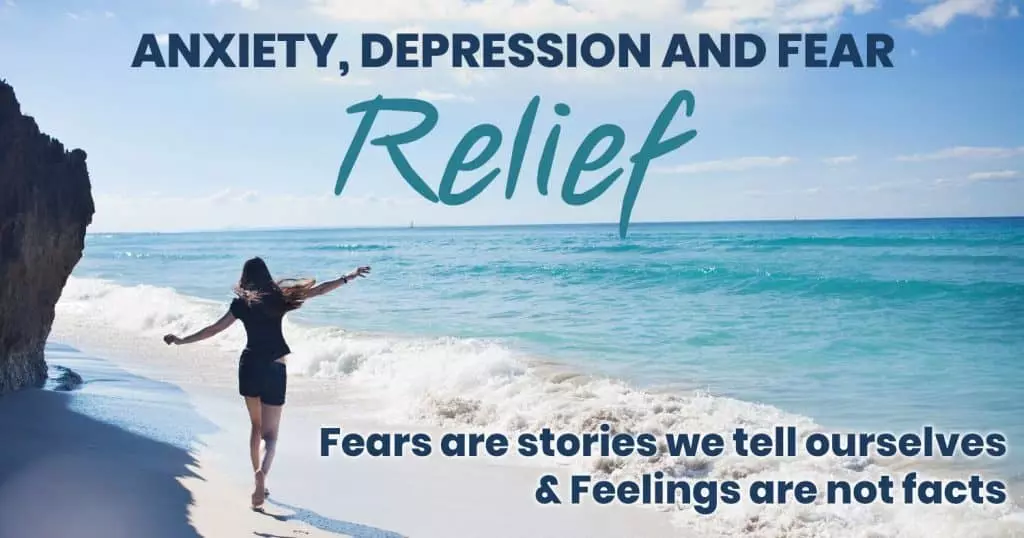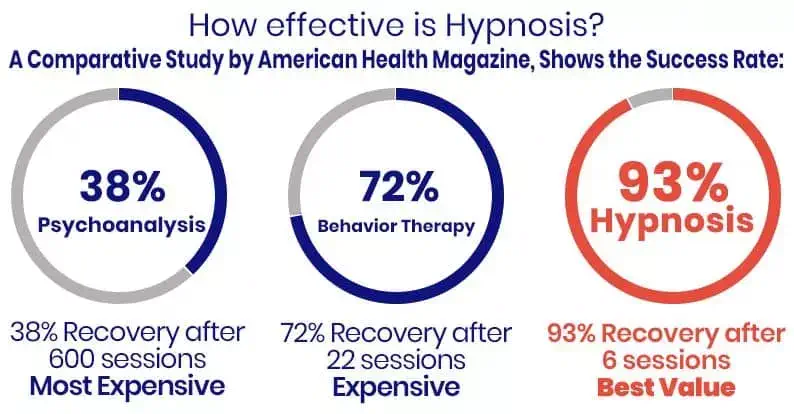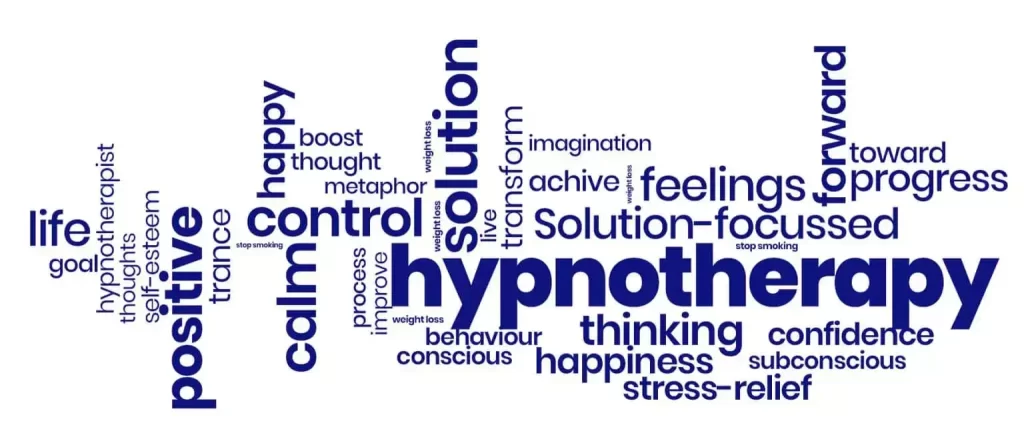
Imagine Living Your Life Fully, Free of Fear and Anxiety
When you struggle with fears and phobias, you may be wondering –
“What can I do to make this go away?”
“Why can’t I just get on an elevator like everyone else?”
“What is causing me to have panic attacks and how can I make them stop?”
Are you suffering from debilitating anxiety even though there are no major issues causing it in your life?
Do you deal with fear and stress on a daily basis that keep you from living?
Are you tired of staying at home because you are afraid of what will happen if you leave your familiar comfort zone?
From the fear of flying to social anxiety, there are thousands of irrational fears that affect an untold number of people across the globe. If you suffer from a phobia, you know how they restrict your life and to what lengths you may go to avoid any situation that is associated with your phobia.

If you are living with generalized anxiety disorders, the act of living can seem impossible. From going to a social event to dealing with normal workplace issues, every aspect of your life is affected by the anxiety that you deal with on a daily basis. You may feel stressed, tense, or unable to sleep. At times, you may become sick or feel like you have no other options. Living with anxiety is a nightmare where your body feels like it is constantly in fight or flight mode. The stress takes its toll and even the simplest of activities feel overwhelming.
Imagine…
Escaping the viscous cycle of negative emotions caused by an anxiety disorder
Calming the fears that you struggle with on a daily basis
Ending the worry that is stopping you from experiencing life
Stopping the negative feedback loop that is fueling your pain
Living a Limitless Fear Free Life
Releasing the deep-seated fear of another panic attack
Believing in your abilities to successfully engage a group of people, and feeling good doing it
Even though you may recognize that your phobia is irrational, and you want to overcome your fear, odds are you suffer panic, nervousness, and anxiety whenever you try to face it. The flight or fight response that occurs is beyond your conscious willpower. It actually stems from your subconscious mind, which means you have little control over it.
Life does not have to end just because you have generalized anxiety disorder. When you are dealing with anxiety, your mind creates an internal feedback loop that plays through the same negative emotions over and over again. You start to worry, which reminds you of your last experience with anxiety, which causes you to become anxious all over again.
Fortunately, this negative feedback loop works both ways. If you can break the cycle, you can create a new loop of positive emotions that provides you with the mental and psychological support to return to your normal life. Instead of living your life with your mind on red alert, you can break the cycle through hypnosis sessions. Your mind becomes reprogrammed to have a feedback loop of calmness and relaxation. You can calm the fears that are stopping you from living life and keep the excessive worrying from coming back.
Thankfully, anxiety hypnosis is a highly effective way to overcome irrational fears and phobias. Hypnosis works quickly and is a completely natural and safe course of treatment. Hypnosis is often the only treatment that effectively eliminates fears, phobias, and anxiety.
Generally, there are three situations that create a phobia; parental influence during childhood, a traumatic event, or being witness to a terrifying event. The biggest problem is that this sensitizing event may not be remembered, though it is certainly stored in the subconscious. Traditional therapies may not be able to uncover the event, but hypnosis is usually able to uncover the event quickly because it deals specifically with the subconscious.
Video Testimonials
Disclaimer: Results may vary from person to person
It is important to root out your fears to prevent them from growing worse. Anxiety hypnosis does this easily by identifying the event that caused the phobia and then uncovering the situations or events that trigger the symptoms of your anxiety or phobia.
Through a hypnotherapy for anxiety session, you can develop an entirely new perspective. Your subconscious is retrained to set aside the concerns that are plaguing it and enjoy life. With this new perspective, you will feel calmer than you have for months. You do not have to live with crippling, generalized anxiety disorder. Through a hypnosis session, you can heal your anxiety and return to the hobbies that you once loved. Until you have recovered, you may not realize the intense changes that anxiety has forced you to make in your life. Every part of your world has been changed to account for anxiety, but it does not have to be.


Your subconscious stores every thought, feeling, and emotion that you have ever experienced and then uses those memories to influence your thoughts and behaviors today. Even if you don’t remember the event or can’t understand why you have the irrational fear to begin with, your subconscious remembers and is using the event, no matter how exaggerated it may have become, as a method of protection. Anxiety hypnotherapy is able to change how your mind perceives the repressed situation or event. It helps the mind recognize that it no longer needs to initiate a flight or fight response to it.
Hypnosis is quite like what occurs when you get lost in a book or movie and lose track of time and your surroundings. It is a natural state that allows your hypnotist to shed light on the cause of your phobias and then place positive affirmations directly to the subconscious that enable you to release the fear, anxiety, and panic.
Hypnosis for anxiety, fears, and phobia works quickly to give you relief from your debilitating fears, so you can be in control of your life. Hypnosis for phobias, anxiety, and fears is an effective way to bring positive change to your life, so you can be free to live the way you want without being limited by terror.


Is hypnosis for phobias and anxiety really effective?
“Hypnosis is a fast, cost-efficient, medication free substitute for treating anxiety. The large amount of research shows convincing proof that hypnotherapy is effective in treating for anxiety.” The National Center for Biotechnology Information
Hypnosis for panic attacks and anxiety is extremely effective because it metaphorically rewires the inner mind to remain calm and at peace. It is also one of the only ways to find the past experience that led to the feelings of anxiety and let it go.
What takes place during a hypnosis for anxiety session?
We start by discussing your challenge and explaining what to anticipate during your hypnosis for anxiety sessions.
Over the course of your anxiety release hypnosis program, you are guided into a concentrated state of awareness and relaxation where your NYC certified hypnotist can uncover the event that prompted your fear. We then train your unconscious mind to let it go. This along with hypnotic suggestive techniques will help you to leave this fear and event in the past where it belongs.
What happens after the hypnosis for panic disorder session?
In between sessions, you will be provided with a hypnotic audio session that will strengthen the hypnosis suggestions for remaining calm and at peace. We also provide personalized strategies that will vary based on the client.
Why should I select the NYC Hypnosis Center, Freedom from Fear, hypnosis program?
We have assisted thousands of New Yorkers (New York, NY) and we have the testimonials to prove it. The videos with client testimonials are not professionally edited because we wanted an authentic and spontaneous accounting of what happened during the sessions and how hypnosis assisted our clients.
The New York City Hypnosis Center is passionate about treating anxiety and receives most of its hypnosis for anxiety referrals from doctors and psychiatrists because of our track record in helping previous patients.
We are certified by the IACHT, the National Guild, and the IACT. Whether it is performance anxiety like public speaking, a phobia like the fear of flying, or generalized anxiety, we are here to help.
Are the sessions offered via Skype as well as in person?
Since some of our anxiety clients are unable to attend in person, we decided early on, to offer Facetime and Skype appointments.
We have found over the years that some clients simply prefer to experience hypnosis at home regardless of their ability to attend live sessions due to their schedule, proximity to the office, or for comfort and privacy. We have assisted clients across the Unites States and too many other countries to count.
Aside from panic attacks and anxiety, online Hypnosis, also referred to as Hypnotherapy, can help clients to quit smoking and with weight loss.
Are there any scientific studies that prove hypnosis works for anxiety?
Hypnosis is a highly effective way to manage the part of the brain which controls fears. In a study of 24 people (12 had phobias regarding dental work, and 12 were a control group), researchers found hypnosis to be useful at changing the fear circuitry structures in the brain.
By changing how fear is processed in the brain, research participants were able to tolerate endodontic procedures and dental surgery with minimal amounts of anesthesia. This study was the first to prove that hypnosis can reduce the effect of anxiety-inducing stimuli, like dental treatments, on the brain, thus enabling people with phobias to mitigate their fears.


Research shows that hypnosis is an effective treatment against depression. In a study, a group of 84 participants was divided into two groups. One part of the group underwent 16 weeks of Cognitive Hypnosis (CH), and the rest were given 16 weeks of Cognitive Behavioral Therapy (CBT).
Although both methods were found to be beneficial, the Hypnosis group proved to be significantly more effective. Due to the hypnosis group’s exceptional scores on the Beck Anxiety Inventory, Beck Depression Inventory, and the Beck Hopelessness Scale, hypnosis met the American Psychological Association (APA) criteria for effective treatments as “probably efficacious.”
Due to the reduction of anxiety, depression, and level of negative mood in both groups, authors in the Treatment of Patients with Anxiety Disorders state hypnosis and cognitive-behavioral strategies both to be effective.
A 1980 study illustrated the positive impact of hypnosis on stress relief, both as a short term and a long-term intervention. In a study of over one hundred participants, over seventy-five participants reported relief after twelve weeks using hypnosis. Remarkably, at one year, nearly the same number reported continued relief from stress.
In a 1999 study of 20 people, self-hypnosis was found to be more effective than relaxation at creating higher levels of confidence and positivity. However, both relaxation and self-hypnosis were useful against anxiety, even in 1 month.
In a 2001 literature review published in the British Medical Journal (BMJ), both relaxation and hypnosis were effective against anxiety. Studies used for the literature review contained both randomized trials and systemic reviews.
Through hypnotic techniques like age regression and ego strengthening exercises, people became panic free.
Hypnosis was able to decrease symptoms like post-traumatic stress disorder (PTSD), generalized anxiety, and distraction.
Hypnotic techniques used to treat panic disorder successfully were age regression and hypnoanalysis ego-strengthening suggestions.
Hypnosis also proved to be useful for treating individuals who have undergone traumatic events, such as sexual-abuse and motor vehicle accidents.
In order to activate and reframe traumatic memories, hypnotherapy was utilized. Hypnotherapy proved to be more productive, as indicated by statistical results from pre and post-test feedback.
Overcoming Anxiety with Hypnotherapy: A Comprehensive Guide
Anxiety disorders, plaguing countless individuals across the globe, give rise to intense emotions of stress, fear, and panic. Generalized Anxiety Disorder (GAD) can develop when these sensations persist and become too much to bear. GAD is marked by a tendency for catastrophic thinking, where sufferers worry excessively about worst-case outcomes. Escaping this mental trap may seem insurmountable to many. Yet, hope exists in the form of hypnotherapy for anxiety, offering a potential reprieve to those desperately seeking relief.
The Onset and Prevalence of Anxiety Disorders
Contrary to expectations, GAD doesn’t typically arise during adolescence. Rather, it often surfaces between the ages of 35 and 45. Although fear and worry are normal emotions, those afflicted with GAD experience a relentless escalation in anxiety without appropriate intervention. Hypnotherapy for stress and anxiety can empower individuals to address the core issues fueling their anxiety, putting an end to the destructive cycle.
The reach of anxiety disorders is extensive, comprising 15% of all mental health conditions. Furthermore, a quarter of the population will likely confront such a disorder at some stage in their lives. Gender disparities are apparent, with GAD affecting about 2.9% of women and about 1.5% of men. A staggering 31.1% of individuals in the U.S. will face an anxiety disorder at least once in their lifetime. Additionally, a considerable 37% of people point to stress and the turmoil of everyday life as the primary triggers for mental health challenges.
Understanding Different Types of Anxiety Disorders
Generalized Anxiety Disorder
First up, we have Generalized Anxiety Disorder, or GAD, the relentless worrier of the group. Those grappling with GAD find themselves trapped in a constant state of worry about various aspects of life, be it work, relationships, health, or even the mere thought of what the future holds. Like an unending record of ‘what ifs’, their mind plays out a series of catastrophic scenarios, making it almost impossible to relax or focus.
Panic Disorder
Next, we have panic disorder, the sudden storm that strikes without warning. Imagine peacefully enjoying a sunny day when out of nowhere, a tornado appears. That’s the reality for those living with panic disorder. They experience sudden and intense bouts of terror that trigger physical symptoms akin to a heart attack – a racing heartbeat, shortness of breath, and a feeling of impending doom. The unpredictability of these panic attacks adds another layer of fear, making them feel like they’re constantly walking on eggshells.
Phobia-related Disorders
Lastly, we come across Phobia-related disorders, the irrational fear mongers. These disorders are characterized by an extreme, irrational fear of specific things or situations that pose little to no actual danger. This could be anything from spiders (arachnophobia) to heights (acrophobia) to flying (aviophobia). The mere thought or presence of these fear triggers can cause intense anxiety, often leading individuals to go to great lengths to avoid them.
Causes and Consequences of Anxiety Disorders
Anxiety disorders often have their roots in early life experiences. Factors that typically contribute to their development encompass overbearing parenting, genetic predispositions, and insecure bonds between parents and children. The repercussions of these disorders can be diverse, leading to eroded self-assurance, escalating despair, feelings of powerlessness, and withdrawal from social circles and family. If neglected, anxiety disorders can give rise to subsequent complications such as depression, panic disorders, and somatic symptom disorders.
The Intersection of Anxiety Disorders and Depression
The lines between anxiety disorders and depression often blur. While anxiety sufferers typically report physical tension, worries, and fears, those in depressive states feel heavy-hearted and downcast. Yet, depression also carries its load of self-doubt, negative thoughts, and worries, albeit more past-focused.
It’s clear that mental health conditions frequently overlap. Individuals battling depression can fall prey to negative thinking patterns and develop anxiety. Conversely, anxiety disorders can spiral into depression.
The danger lies in letting anxiety disorders fester untreated. Persistent anxiety can intensify and become chronic, making seeking professional help crucial. Timely intervention can break this negative cycle and prevent the progression from anxiety to depression or other mental health complications.
Can Hypnosis Help with Anxiety?
So, how does hypnosis work for anxiety? Hypnotherapy, employed to treat anxiety, aims to cultivate a more optimistic and pragmatic perspective on life. Delving into the subconscious mind through hypnosis, clients can confront deeply rooted fears and foster healthier relationships with their bodies, emotions, and thoughts. Hypnosis can assist individuals in managing their thoughts and emotions more effectively by disrupting distressing thought patterns and blockages.
Self-hypnosis serves as a drug-free method for addressing anxiety, targeting its root causes within the subconscious. In an entranced state, patients become receptive to suggestions that aid them in maintaining calmness amidst anxiety-inducing situations. Hypnotherapy for anxiety can also lead patients through age regression, allowing them to revisit and reframe past experiences contributing to their anxiety.
Addressing Anxiety Disorders with Hypnotherapy
Hypnotherapy for anxiety aims to foster a positive, realistic outlook on life. Though problems, worries, and fears are inherent to life, people free of these mental burdens manage to separate themselves from such issues, preventing them from ruling their existence.
Unearthing and Alleviating Deep-Rooted Fears through Hypnosis for Anxiety
Hypnosis for anxiety paves the way for a profound state of relaxation, enabling treatment to begin at the root of anxiety—the subconscious mind. For those suffering from generalized anxiety disorder, life centers around fear, making them psychologically and subconsciously vulnerable. This vulnerability often causes a discordance between mental and physical sensations. Hypnosis facilitates the establishment of a healthier connection to one’s body, emotions, and thoughts, promoting more effective regulation of our feelings and thoughts.
The crux of hypnotherapy involves achieving states such as deep relaxation and hypnotic trance, which can shatter stress-inducing thought loops and blockages. It permits access to subconscious experiences and beliefs, enabling us to visualize them and bring them into our conscious awareness. In the course of a hypnosis session, the therapist and client often recreate anxiety-triggering situations, then modify the client’s perception of them to dismantle the blockages and thought patterns right there and then. This approach may initially provoke discomfort, but rest assured, you’ll be safe and guided throughout the hypnosis process.
Finding the Right Hypnotherapist for Anxiety
It’s vital to find a qualified, experienced hypnotherapist for anxiety. Seek a practitioner with reputable training and a history of success in treating clients with anxiety disorders. Comfort and trust are key to a successful therapeutic relationship.
Self-Hypnosis for Anxiety
Self-hypnosis, a drug-free approach, addresses anxiety’s underlying causes at a subconscious level. Patients become receptive to suggestions that help them stay calm during anxious moments. Anxiety hypnosis can lead to lasting improvements in mental health and well-being.
A Drug-Free Approach to Tackling Anxiety with Hypnosis
Hypnosis for anxiety and stress provides a medication-free avenue for addressing anxiety by targeting its root cause at a subconscious level—the part of the mind where anxiety exists as an automated response. In a trance-like or heightened state of awareness, the individual’s focus becomes so sharp that they are open to suggestions, while distractions fade into the background.
In this state, a suggestion can be implanted in a patient’s subconscious. For example, when they start to feel anxious, they can simply remind themselves that they have full control over their thoughts, allowing them to maintain calm instead of spiraling into an anxiety attack. If a patient’s anxiety stems from an embarrassing childhood event, anxiety hypnotherapy can guide them back to that period throughregression, helping to reframe it into a more positive experience. This technique proves particularly beneficial for those struggling with Generalized Anxiety Disorder, especially if they’re grappling with moderate to severe symptoms of anxiety and depression. Call today for your Hypnosis for Anxiety appointment.
LIST OF FEARS & PHOBIAS HYPNOSIS SESSIONS THAT WE OFFER


Don’t forget to visit our page past life regression in nyc!

